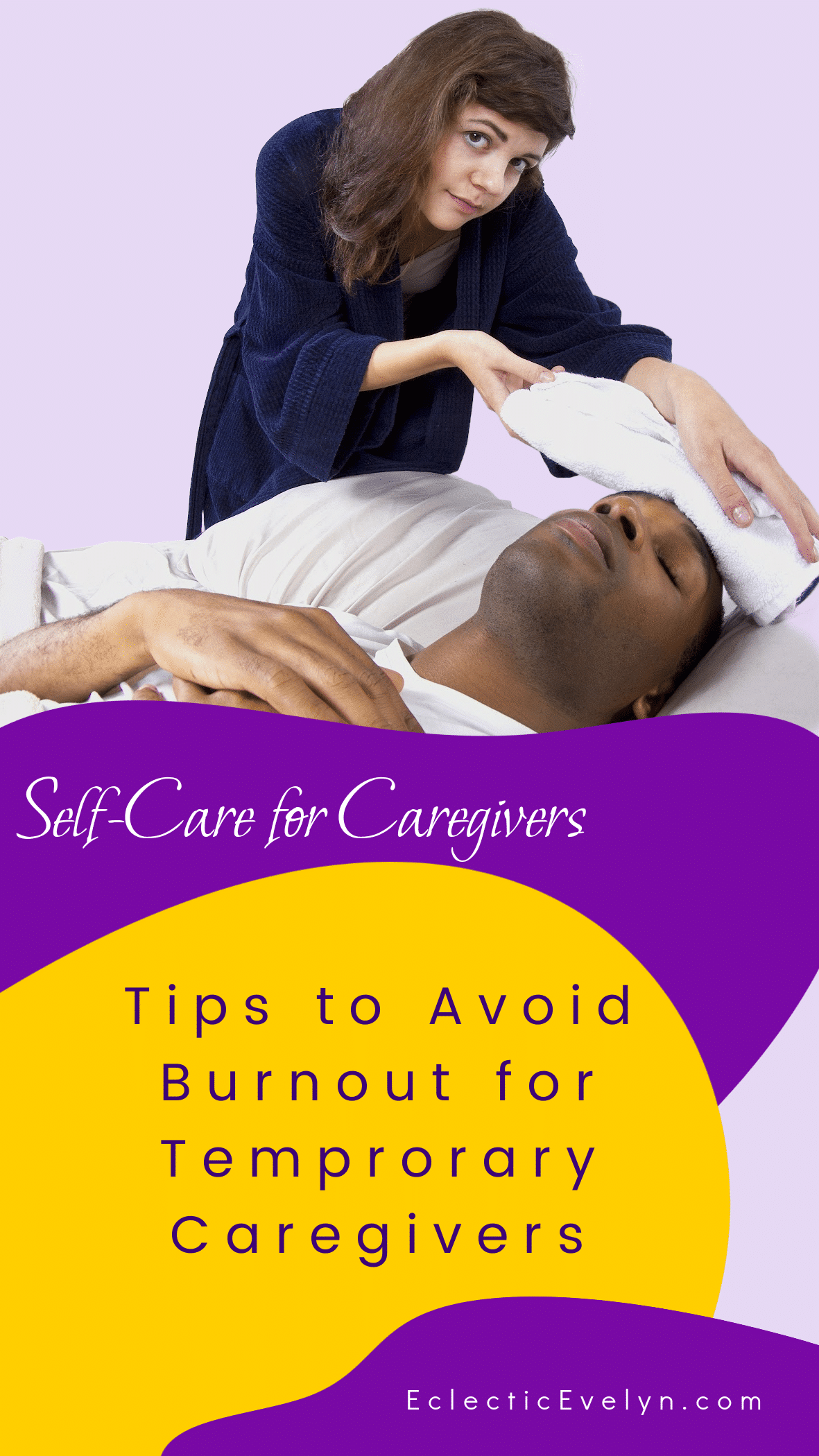Whether you’re taking care of a friend fresh out of surgery, helping an aging parent for a few weeks, or holding things together while your partner recovers from an injury, one thing is certain: you’re a caregiver now. Even if it’s temporary, it can take a serious toll. That’s why self care for caregivers isn’t optional, it’s survival.
You didn’t go to nursing school. You’re not a trained home health aide. But suddenly, you’re managing meds, cooking meals, and trying to stay sane between laundry loads and late-night Google searches for “how to keep your bestie from trying to shower with a cast on.” Welcome to the wild world of short-term caregiving, where love meets chaos and burnout is always lurking.
If you’re in it right now, here are six real-talk tips to help you care for someone else without losing yourself in the process. And remember, self care for caregivers is a daily necessity, not a luxury reserved for later.
1. Recognize That You’re a Caregiver (Even If It’s Temporary)
One of the biggest hurdles to practicing self care for caregivers is not realizing you are one. You may think, “I’m just helping out for a little while,” but guess what? That emotional labor, that exhaustion, that mental checklist running 24/7? That’s caregiving. Naming it gives you permission to take it seriously, and to take care of yourself while doing it.
Maybe you’re driving your dad to appointments, or staying overnight with your friend who had surgery. Even if it’s not permanent, it’s still valid. Just because you don’t wear scrubs doesn’t mean your role isn’t essential. Once you acknowledge that, it’s easier to recognize your limits, your stress, and your very real need for support. This is where self care for caregivers begins.

2. Ditch the Guilt and Ask for Help
We Gen X women are notorious for muscling through. We were raised to be independent, resourceful, and to never ask for help unless it was an emergency. Well girl, this is the emergency. Self care for caregivers starts with recognizing your limits. Whether it’s calling in reinforcements, asking a neighbor to sit with Mom, or outsourcing dinner, say yes to help. No guilt, no shame.
Think of it this way: if the roles were reversed, wouldn’t you want your friend or sibling to ask for what they needed? Let others show up for you. Let someone else pick up the groceries or watch your person for a couple hours. That’s not weakness, that’s wisdom. Self care for caregivers is about creating space to breathe, even if you have to schedule it like a doctor’s appointment.
3. Rest Like It’s Your Job
You can’t pour from an empty cup, and you sure as hell can’t pick someone up off the bathroom floor when you’re running on fumes. Sleep. Sit down. Binge that comfort show. Nap in your car. Self care for caregivers means building in rest like it’s a non-negotiable part of the plan, not a bonus if you get everything done (because you won’t).
Even if it’s just ten minutes with your eyes closed while listening to a meditation app or staring out the window with a warm drink, it counts. Rest doesn’t have to mean sleep, it means unplugging, recharging, and stepping away from the chaos. You’re not being lazy. You’re being smart. Self care for caregivers means protecting your energy like your life depends on it, because sometimes it really does.
4. Feed Yourself First (Physically and Emotionally)
This isn’t just about scarfing down a granola bar while making someone else’s lunch. Are you hydrated? Have you eaten anything with a vitamin in it today? When was the last time you laughed? Put on a playlist that pumps you up, grab your favorite snack, and take ten minutes to just be a human. Self care for caregivers includes joy, too.
Order your favorite takeout if you don’t have the energy to cook. Grab a smoothie while running errands. Let someone else do the cooking or cleaning once in a while. Emotional nourishment is just as important—scroll your favorite meme account, journal it out, or send a funny voice message to a friend. Self care for caregivers also means feeding your soul.

5. Protect Your Peace, Set Boundaries
If you’re staying with someone or they’re staying with you, boundaries will keep you from going full meltdown. Set up a daily quiet time, carve out a private space just for you (even if it’s the bathroom), and stop apologizing for needing space. Practicing self care for caregivers often means standing firm in your “no,” even when it feels uncomfortable.
Try using simple phrases like, “I need ten minutes alone,” or “I’m not available for that right now.” Boundaries aren’t mean, they’re healthy. They help everyone know what to expect. The more consistent you are, the more peaceful your day becomes. Self care for caregivers requires you to honor your own limits, not just the needs of the person you’re helping.
6. Have a Backup Plan (and a Go Bag!)
Life happens. You might get sick, hit your breaking point, or need to step away. Who steps in if you can’t? Create a short list of backup people or services you can call. Keep a “go bag” packed with essentials for a quick overnight reset if you need it. Self care for caregivers means planning ahead so you don’t end up stuck or spiraling when things shift.
Your go bag might include snacks, meds, headphones, clean clothes, and that book you’ve been meaning to finish. You might also keep a checklist taped to the fridge with daily instructions in case someone else needs to step in. Having a backup plan isn’t pessimistic, it’s powerful. It means you’re not the only thing holding everything together, and that’s a form of self care too.

Being a caregiver, even temporarily, is a full-body, full-heart job. But your needs don’t disappear just because someone else’s feel bigger. The truth is, you’ll show up better, love deeper, and survive the chaos longer if you take care of you, too. Never forget: self care for caregivers isn’t a luxury, it’s a necessity. Because no matter how temporary the caregiving role is, you still matter in the middle of it. And self care for caregivers is how we keep ourselves whole while we’re holding everyone else together.
What’s one self care ritual that keeps you grounded when life gets chaotic?





